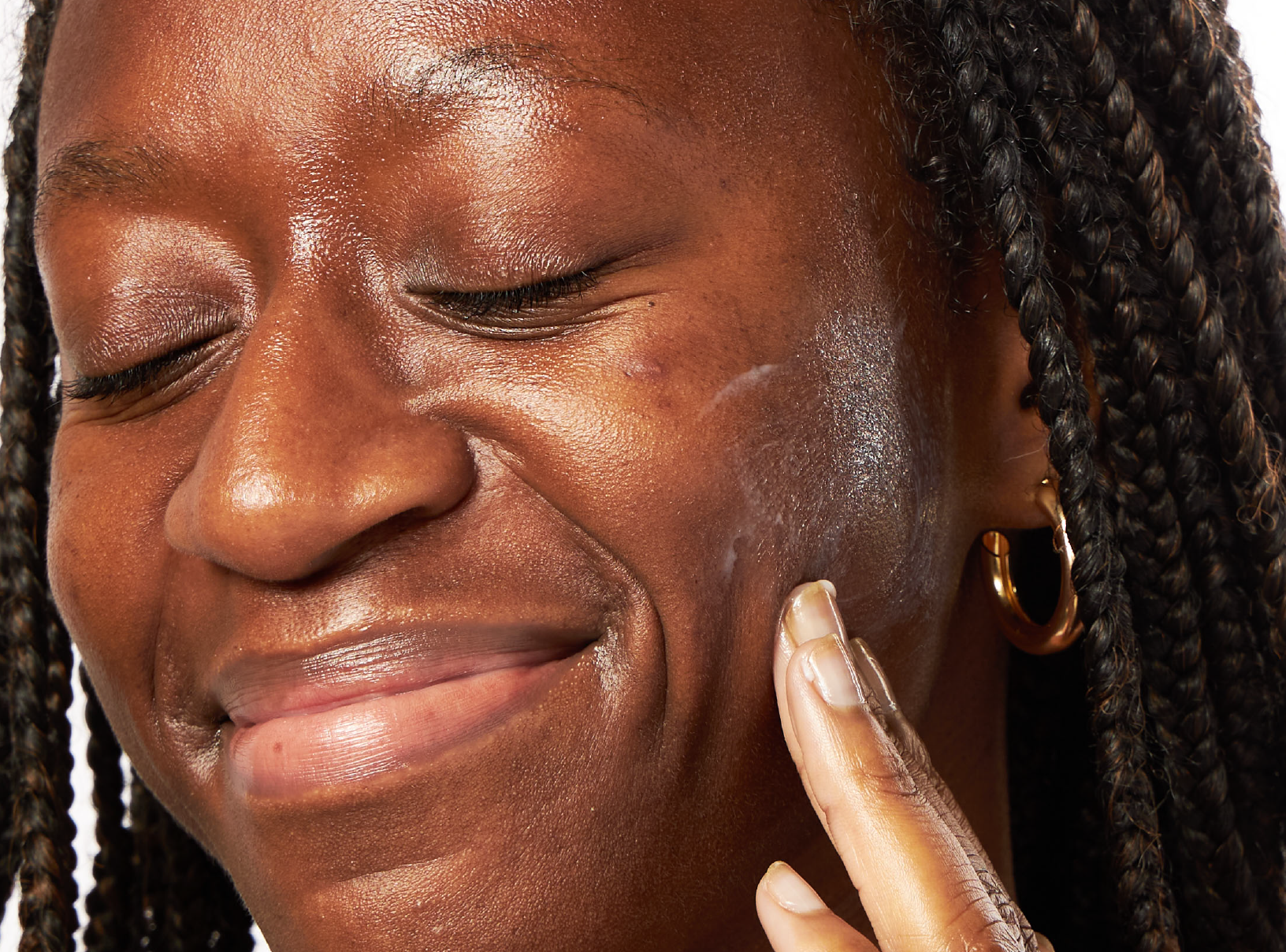Education
Over the Counter vs Prescription Acne Treatments
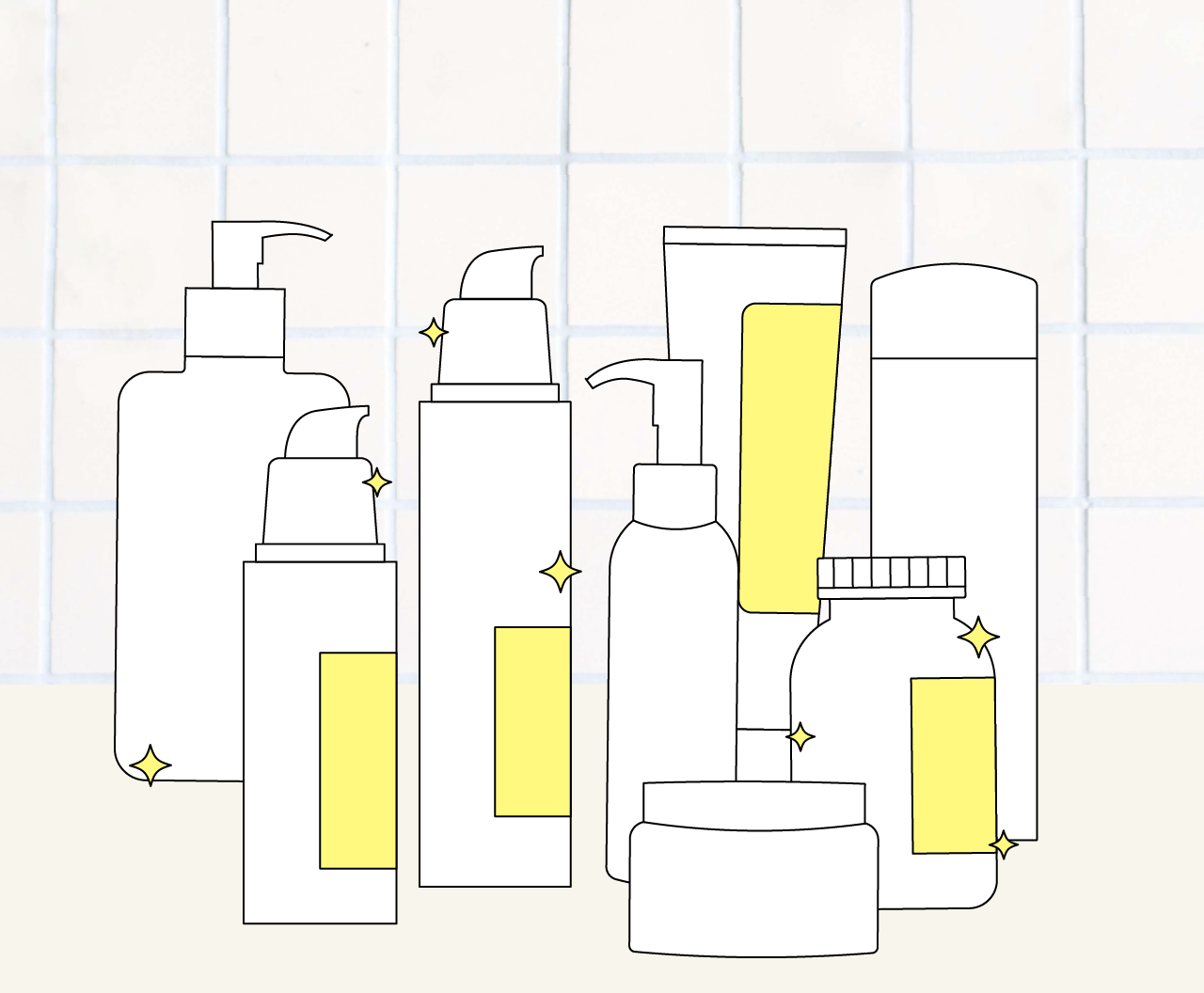
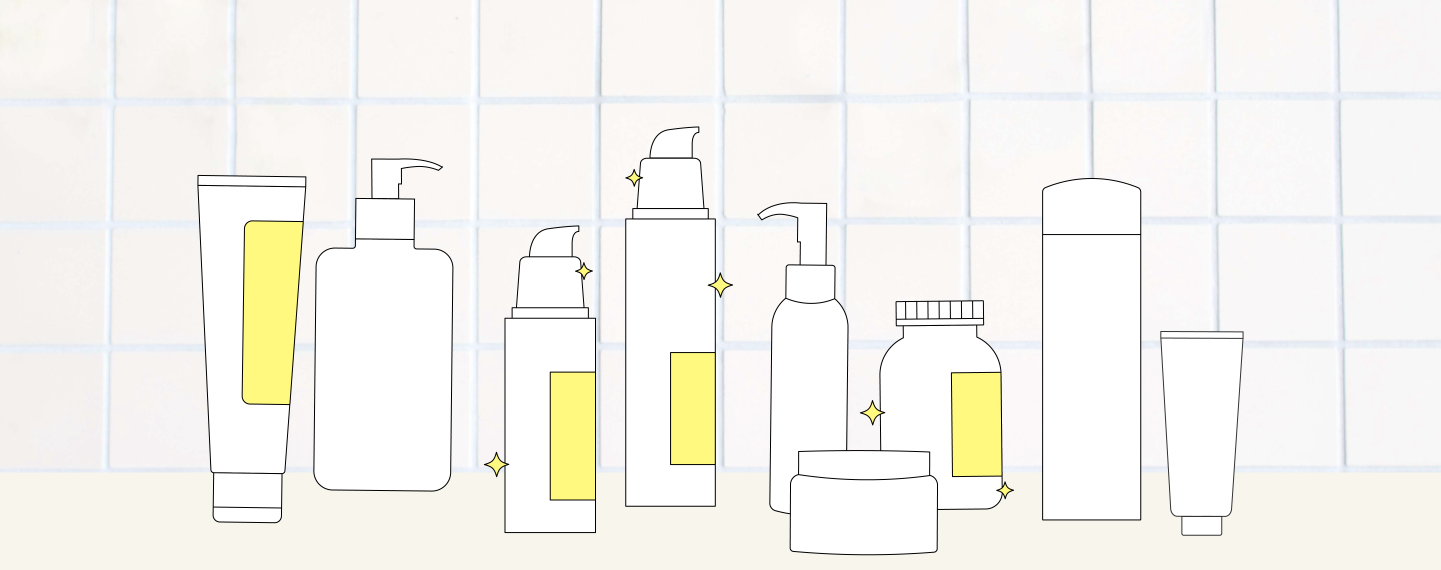
SHARE
Education
Over the Counter vs Prescription Acne Treatments
Medically reviewed by Aimee Paik, MD
Written by Annie Lam
Last updated 4/1/2022
If you've tried looking for a treatment for your acne, you probably know that there are a lot of options out there, from over-the-counter (OTC) treatments to prescription medicine. Depending on what types of acne you're dealing with, a certain type of treatment may work better for you than the other.
It can be hard to know where to start, so we're here to help. If you've wondered what the difference is between an OTC product and prescription medication for acne, we're breaking down everything you need to know.
Over-the-counter acne treatments
OTC treatments are products that you can buy at your local drugstore or beauty retailer. There are thousands of skin care products available to purchase without a prescription, ranging from affordable to high-end.
Many skincare routine staples like most facial cleanser and moisturizer options are considered cosmetics so they are not regulated by the FDA. While there is no regulation, cosmetic companies are still responsible for creating "safe, properly labeled products; using no prohibited ingredients; and adhering to limits on restricted ingredients."
OTC drug ingredients
Most ingredients used in over-the-counter products are considered cosmetics, but there are a handful of ingredients for acne that are regulated as drugs by the FDA:
- Salicylic Acid: A beta-hydroxy acid that is regulated as a non prescription drug to treat mild acne.
- Benzoyl Peroxide: An acne-fighting ingredient that reduces acne-causing bacteria to treat mild breakouts.
- Adapalene: A prescription-strength retinoid that is now available as an over-the-counter acne treatment.
Because these ingredients are regulated as drugs by the FDA, these products can make claims about medical skin benefits like treating acne.
You might be wondering, how do you know if an ingredient is considered an over-the-counter drug? Part of the FDA's regulation is that all OTC medication ingredients must be listed separately under drug facts. Active ingredients like salicylic acid will be shown on the label of your drugstore acne treatment.
If you're looking for effective drugstore acne products, look for clinically proven ingredients like salicylic acid, benzoyl peroxide, and adapalene. These treatments can help mild breakouts, but if you're dealing with more moderate to severe acne, prescription treatments may be a better option.
Prescription acne treatments
Moving on to prescription medications. These treatments must be prescribed by a medical professional and are typically filled by your local pharmacist. What can doctors prescribe for acne? Depending on your medical condition, a dermatologist acne treatment may have one (or several) science-backed ingredients to effectively treat your breakouts:
Prescription topical ingredients
Tretinoin: A topical retinoid that unclogs pores, improves mild acne scars, and treats signs of aging.
Azelaic Acid: A treatment that has natural anti-bacterial and anti-inflammatory properties.
Spironolactone: A topical medication that has antiandrogenic properties to balance sebum production and treat hormonal acne.
Clindamycin: A topical antibiotic that helps to calm inflammation and reduce acne-causing bacteria.
Derms recommend using benzoyl peroxide alongside clindamycin to prevent antibiotic resistance.
Prescription oral medications
Oral Spironolactone: An oral medication that has antiandrogenic properties to balance sebum production and treat hormonal acne.
Oral Contraceptives: Birth control pills with estrogen and progesterone help to lower the effect of androgens.
Oral antibiotics: Oral medications like doxycycline and minocycline help to quickly reduceinflammation.
Isotretinoin (Accutane): An oral retinoid that is typically used to treat very severe, cystic acne.
Regardless of which medications you are prescribed, it's important to follow the direction from your doctor on the prescription label. It can take time to see progress with all oral and topical treatments, but staying consistent will provide the best results!
OTC vs prescription acne treatments
When it comes to deciding between over-the-counter and prescription medication for acne, a lot of it will depend on the severity of your acne. If you deal with mild whiteheads and blackheads, opting for salicylic acid or benzoyl peroxide treatments can help. These ingredients are available OTC and are a great place to start.
However, if you're dealing with moderate to severe breakouts, we'd recommend checking in with a dermatologist to see if prescription acne treatments are the right fit for you.
The main differences:
What's the difference between prescription and over the counter drugs? The two main differences are strength/efficacy and accessibility.
Strength & efficacy:
- Over-the-counter acne treatments are much more gentle and can take longer to see results. They are typically not strong enough to treat moderate to severe breakouts.
- Prescription acne treatments are stronger and more effective for treating acne of all severities. For some, they can cause initial sensitivity (like skin purging or irritation).
- There are certain ingredients that can be found both over-the-counter and prescription-strength. For example, azelaic acid is available in lower percentages OTC, but the prescription strength (15%) is stronger and more effective.
Accessibility:
- OTC medicine and acne treatments are available at your local drugstore or beauty retailers and can be found in a variety of different formats. Acne-fighting cleansers and treatments are typically the most common.
- Prescription-strength treatments are only available with a doctors prescription. Most patients will need to see a dermatologist in order or go through their health care provider to get the right treatment for their skin. Luckily, Apostrophe makes it easy to get expert care for your skin from the comfort of your own home. No trips to the doctor's office or pharmacy are needed!
Get expert acne treatment from Apostrophe
If you're looking to get dermatological care for your skin, Apostrophe has you covered. A board-certified dermatologist will create a customized treatment plan for your unique skin.
The best part? You get to skip the trip to the pharmacy and get your acne treatment shipped directly to your home. If you're ready to feel confident in your skin, get customized acne treatment today!
Shop this post
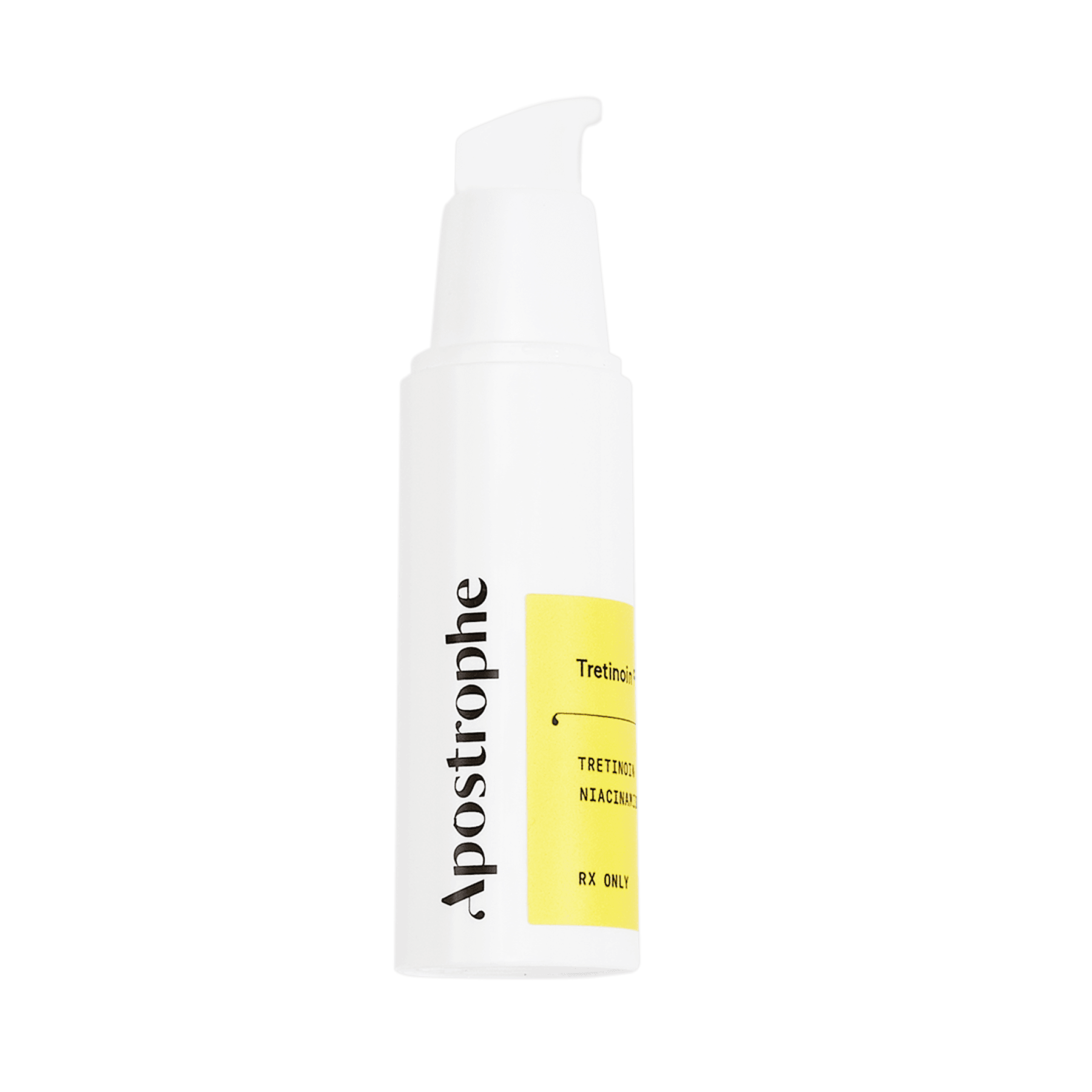
Finacea (azelaic acid)

Clindamycin
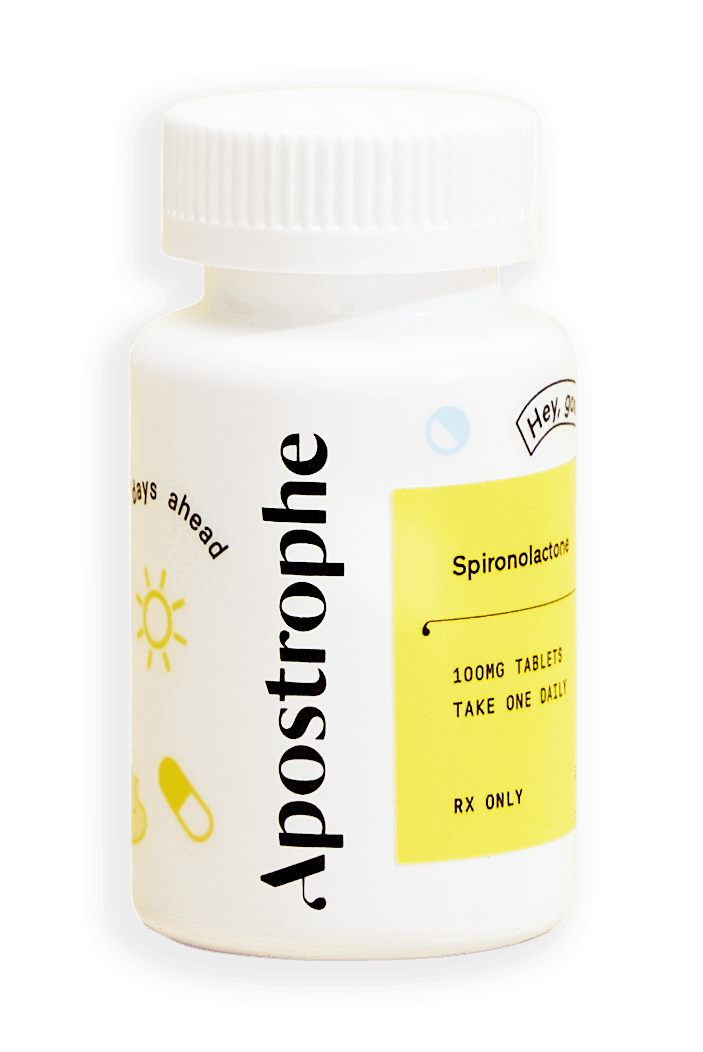
Oral doxycycline

Oral minocycline

Oral Spironolactone

Topical Spironolactone

Tretinoin
Like what you just read? Sign up for our email list to get the scoop on skincare science delivered straight to your inbox.

Education
What is milia?
What is milia? Today, we’re jumping into one type of bump that you may have heard about most commonly in infants — milia.
Read More
Education
Best moisturizer for acne-prone skin
If you have combination acne-prone skin, figuring out which moisturizer is best for your skin might be tough. In this guide, we break down the best moisturizer for combination, acne-prone skin.
Read More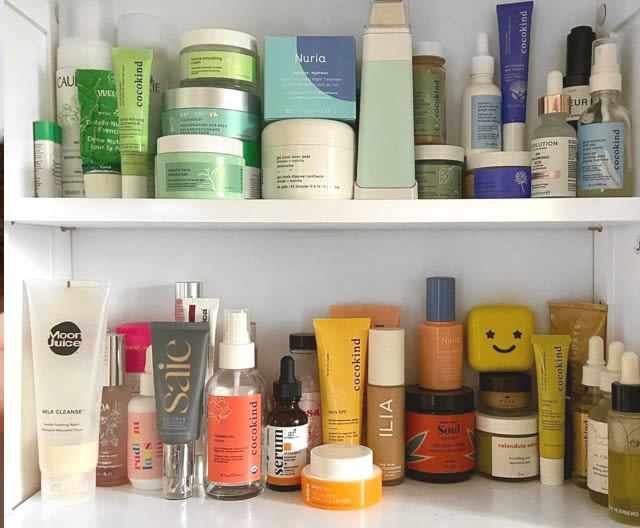
Education
How to build a face care routine
As you get into skincare, it might seem overwhelming, especially trying to figure out the order you're supposed to apply products in. Below, we detail how to build a face care routine for your skin!
Read More
